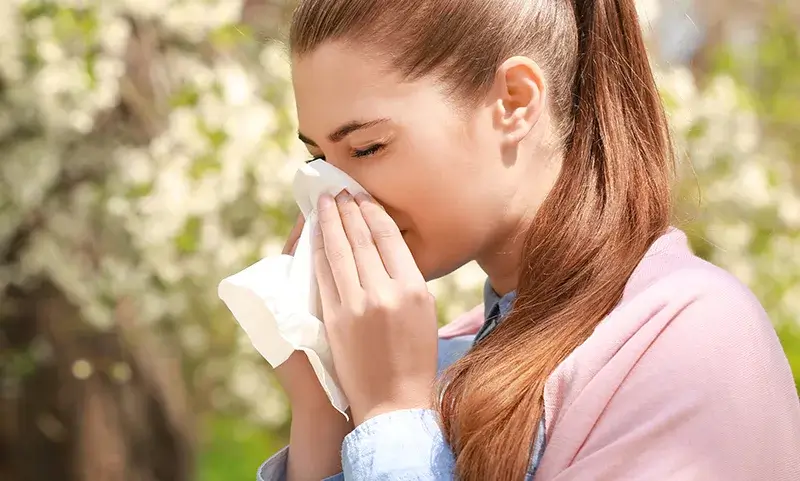Discover safe and effective Ayurvedic treatment for allergies, including herbs, diet, and lifestyle tips to alleviate symptoms and boost immunity.
Allergies are a hypersensitive reaction of the immune system to substances that are typically harmless to most people. These substances, known as allergens, can be found in foods, pollen, dust, animal dander, or certain chemicals. Symptoms of allergies can vary from mild (sneezing, itching, rashes) to severe (difficulty breathing, anaphylaxis).
Ayurveda, the traditional system of medicine from India, offers natural, holistic approaches to managing and treating allergies, focusing on balancing the body's energies (doshas) and strengthening the immune system. This guide explores Ayurvedic treatments, dietary recommendations, and lifestyle adjustments to manage allergies effectively.

Ayurvedic treatment for allergies focuses on balancing the doshas, strengthening immunity, and detoxifying the body using herbs, Panchakarma therapies, yoga, and diet to reduce inflammation and manage allergic reactions naturally.
Ayurvedic herbs are well-known for their ability to support immune function, reduce inflammation, and combat allergens. Some key herbs for allergy management include:-
Panchakarma is a detoxifying Ayurvedic therapy aimed at purging accumulated toxins (ama) from the body. It includes various treatments, such as:-
Yoga plays a crucial role in balancing the doshas, calming the nervous system, and boosting the immune system. Several asanas can help manage allergy symptoms:-
Ayurveda offers a comprehensive approach to managing allergies by addressing the root cause of immune system imbalances and promoting overall health. Incorporating Ayurvedic herbs, therapies, yoga, a balanced diet, and healthy lifestyle choices can provide long-term relief from allergies, reduce dependence on medications, and improve overall wellness. By tuning into your body's needs and following Ayurvedic guidelines, you can achieve better harmony and balance, effectively managing allergies with natural, holistic treatments.
We focus on treating the root cause of illness, not just the symptoms. By addressing the imbalances in your Doshas at their source, we help you achieve lasting wellness and long-term results.
Book Appointment Now
